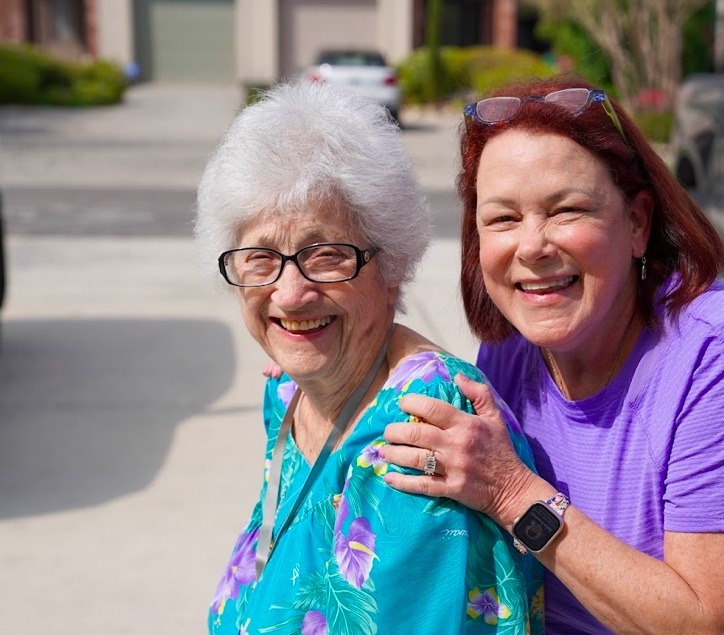
As your loved one ages, it grows increasingly important to be mindful of their safety and quality of life. No one ever wants to receive a phone call detailing their elderly loved one lost on public transport or slipping in the shower. The skills required to live independently can become more challenging in our senior years, and it’s crucial to know at what point a senior citizen might need further assistance or additional care. Evaluating your elderly loved one’s ability to perform Activities of Daily Living (ADLs), and Instrumental Activities of Daily Living (IADLs), is a great way to determine their level of independence.
What are Activities of Daily Living (ADLs)?
First coined by Stephen Katz in 1950, Activities of Daily Living, also known as ADLs, are skills or actions considered fundamental to living and caring for oneself without assistance. This skill set determines the degree to which an older adult can live independently, including activities such as eating, mobility, and bathing. Measuring a senior citizen’s ADL is an essential predictor of admission to assisted living, the use of additional home care, and even hospitalization.
There are several different types of ADLs, but basic ADLs describe the fundamental physical needs of an individual. They are measured by the degree to which they can accomplish them independently. The full list of basic ADLs includes ambulating, feeding, dressing, personal hygiene, continence, and toileting.
- Ambulating is a term used to describe the extent of an individual’s ability to walk independently and move from one position to another.
- Feeding describes the person’s ability to feed themselves.
- Dressing is the person’s ability to select clothes that are appropriate and put the clothes on.
- Personal hygiene describes one’s ability to bathe themselves and maintain dental, nail, and hair hygiene.
- Continence is the ability to control one’s bowels and bladder, and toileting describes one’s ability to get to and from the restroom, use it appropriately, and clean themselves afterward.
Activities of Daily Living Definition
First coined by Stephen Katz in 1950, Activities of Daily Living, also known as ADLs, are skills or actions considered fundamental to living and caring for oneself without assistance.
What are Instrumental Activities of Daily Living (IADLs)?
Instrumental Activities of Daily Living, abbreviated to IADLs, are intended to analyze the capacity to which a senior citizen can function independently. IADLs are generally lost before basic ADLs, include more complex activities, and require more organizational and thinking skills. In a nutshell, IADLs describe the individual’s ability to live independently within a community. These activities include basic communication skills, transportation, meal preparation, shopping, housework, managing medications, and managing personal finances.
- Basic communication skills encompass using a regular or mobile phone, mail system, email, or the Internet.
- Transportation describes the ability to either drive by oneself, arrange rides, or navigate and use public transit.
- Meal preparation includes meal planning, cooking, clean-up, storage, and the ability to remain safe and sanitary during the duration of the meal preparation process.
- Shopping describes an individual’s ability to make appropriate purchase decisions.
- Housework includes all of the household chores and activities required to maintain a clean place of residence.
- Managing medications includes taking the correct amount of medicine at the right time, as directed by a physician, and keeping up with refills.
- Managing personal finances includes operating with a budget, paying bills, writing checks, and avoiding financial scams.
ADL Home Assessment
An ADL assessment is relatively simple by following the steps below:
- The senior is tested on each of the ADLs mentioned above (bathing, dressing, toileting, transferring, continence, and feeding).
- A score is assigned to each ADL independently. (“1” if they can complete the task, or “0” if they can’t).
- Then, numbers are added to determine the level of independence. The higher the number, the more independently the senior citizen can live; for example, if a senior scored 5 points out of the 6 possible points, they are considered relatively capable of living independently. In contrast, if the score totaled 1 point out of 6, it would be recommended to seek more hands-on senior care.
When is it Time For Care?
ADLs and IADLs are great metrics for determining the ability of a senior citizen to live independently. So, if you find that your loved one is struggling to complete basic activities of daily living, it might be time to seek out care.
We all want our loved ones to age gracefully. Ultimately, it’s all about making sure your loved one is safe, and their well-being looked after. Activities of daily living are a dependable way to determine your elderly loved one’s independent functioning capabilities and an excellent tool for deciding what is best for them. By keeping an eye on their capacity to accomplish these tasks and manage these skill sets, you can better ensure that their quality of life is maintained and that their safety is assured. If your elderly loved one requires assisted living services or memory care in New Orleans, please contact Peristyle Residences. We also offer respite care for seniors who require short-term senior living.
Others are homelike; Peristyle Residences is home!
